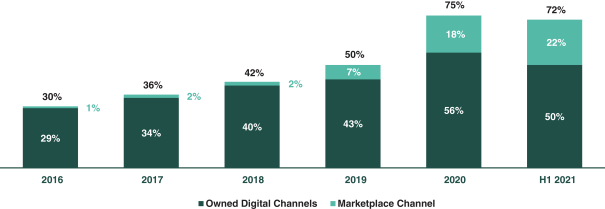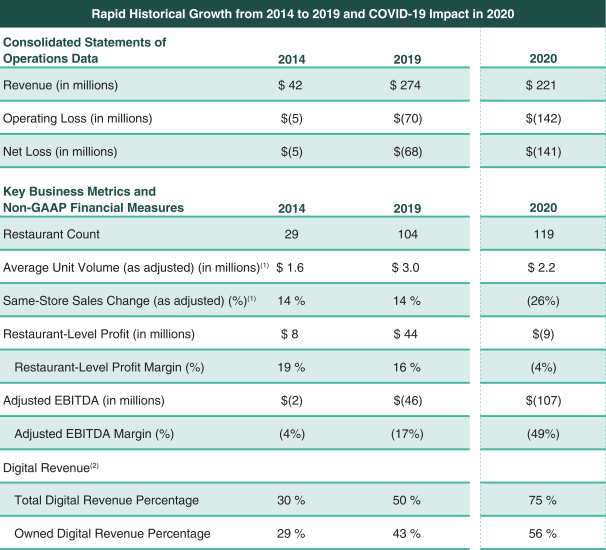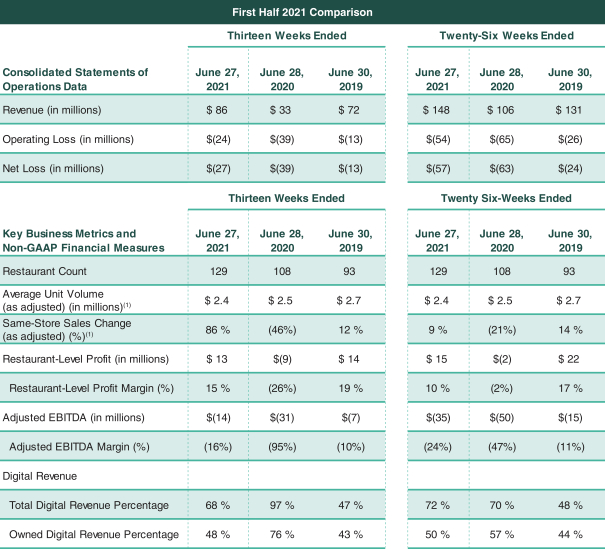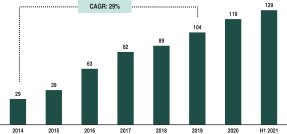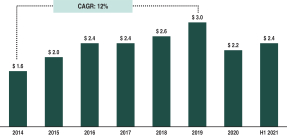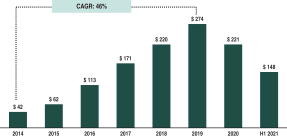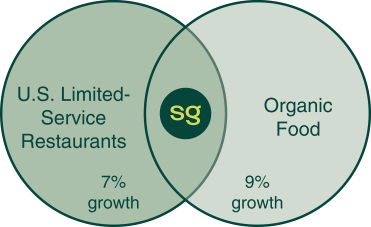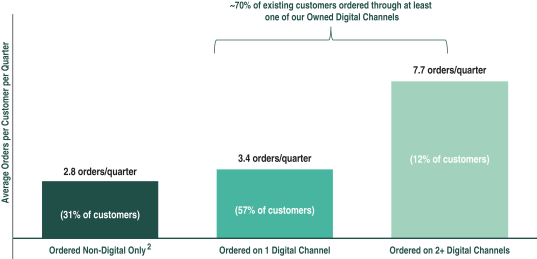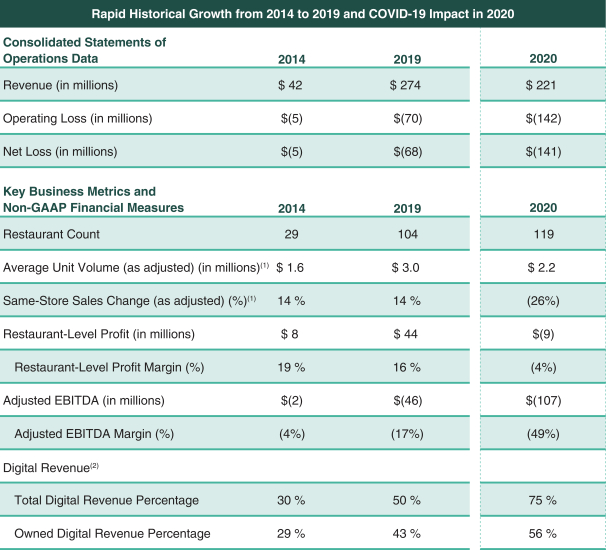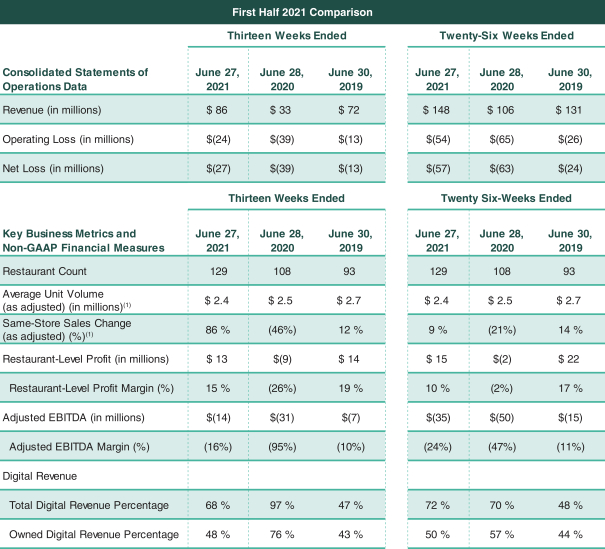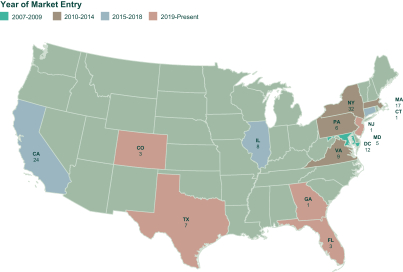“sweetgreen Outpost.” Internationally, we currently have registered our core sweetgreen mark, along with selected other marks, in foreign jurisdictions including Australia, Canada, China, the European Union, Hong Kong, Japan, Mexico, South Korea, and the United Kingdom. These marks are registered in multiple international trademark classes, including for restaurant services and related goods and services. We are currently pursuing additional trademark registrations in the United States and abroad and will continue to pursue additional trademark registrations to the extent we believe they would be beneficial and cost-effective. We also have one patent application pending in the United States. We intend to pursue additional patent protection to the extent we believe it would be beneficial and cost-effective. We have obtained a registration of the sweetgreen.com domain name as well.
We have procedures in place to monitor for potential infringement of our intellectual property, and it is our policy to take appropriate action to enforce our intellectual property, taking into account the strength of our claim, likelihood of success, cost, and overall business priorities.
Government Regulation
We are subject to various federal, state, and local regulations, including those relating to building and zoning requirements, public health and safety and the preparation and sale of food. The development and operation of restaurants depends to a significant extent on the selection and acquisition of suitable sites, which are subject to zoning, land use, environmental, traffic, and other regulations and requirements. Our restaurants are also subject to state and local licensing and regulation by health, sanitation, food and occupational safety, and other agencies, which regulation has increased in the wake of the COVID-19 pandemic. We may experience material difficulties or failures in obtaining the necessary licenses, approvals or permits for our restaurants, which could delay planned restaurant openings or affect the operations at our existing restaurants. In addition, stringent and varied requirements of local regulators with respect to zoning, land use, and environmental factors could delay or prevent development of new restaurants in particular locations.
Our operations are subject to the U.S. Occupational Safety and Health Act, which governs worker health and safety, the U.S. Fair Labor Standards Act, which governs such matters as minimum wages and overtime, and a variety of similar federal, state and local laws (such as fair work week laws, immigration laws, various wage & hour laws, termination and discharge laws, and state occupational safety regulations) that govern these and other employment law matters. We may also be subject to lawsuits or investigations from our current or former employees, the U.S. Equal Employment Opportunity Commission, the Department of Labor, or others alleging violations of federal and state laws regarding workplace and employment matters, discrimination and similar matters, and we have been a party to a number of such matters in the past. These lawsuits and investigations require significant resources from our senior management and can result in material fines, penalties and/or settlements, some or all of which may not be covered by insurance, as well as significant remediation efforts that may be costly and time consuming, and which we may not implement effectively.
We are also subject to the Americans with Disabilities Act (the “ADA”) and similar state laws that give civil rights protections to individuals with disabilities in the context of employment, public accommodations and other areas, including our restaurants, website, and smartphone applications. In the past, we have settled various lawsuits related to our alleged ADA non-compliance, which resulted in accommodations to our website, smartphone applications and physical restaurant locations.
Privacy, Data Protection, and Data Security
Because our business and platform involve the collection, use, storage, and transmission of personal information, we are subject to numerous laws, regulations, industry standards, and other obligations relating to privacy, data protection, and data security. Such laws, regulations, and industry standards may include Section 5(a) of the Federal Trade Commission Act, the Telephone Consumer
134

